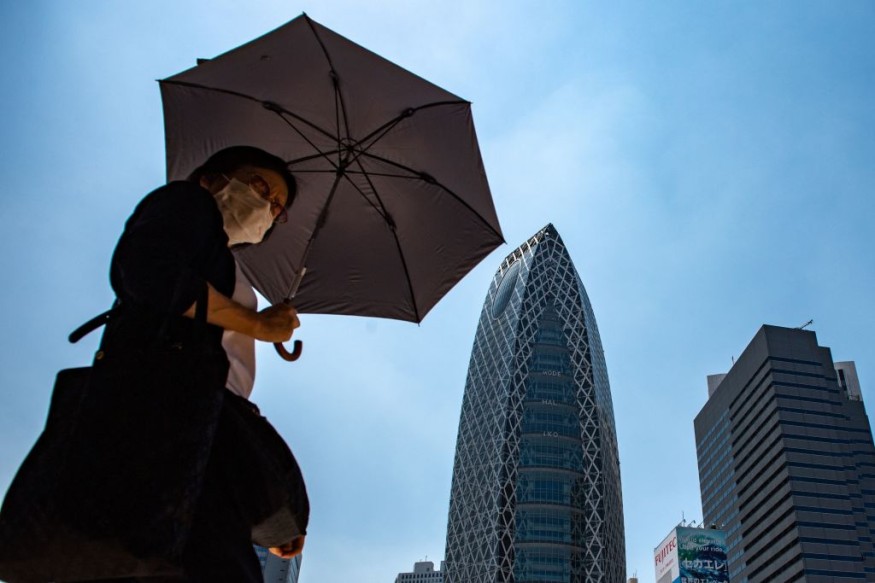
Extreme weather in Japan has urged the Japanese government to go the extra mile in saving energy amidst heatwave.
37 million locals were asked to switch off lights for three hours a day while "properly using air conditioning and hydrating during hot hours" to reduce use of electricity, the Independent reported, as temperatures reach new highs in the nation.
According to a Tokyo forecast, temperatures had reached 37C (98.6F) throughout Wednesday, and the mercury is not expected to drop below 34 until Sunday. The Japan Meteorological Agency forecasts highs of 36 C for Tokyo on Thursday and 35 C on Friday.
"We ask the public to reduce energy consumption during the early evening hours when the reserve ratio falls," Yoshihiko Isozaki, deputy chief cabinet secretary, said in a press briefing.
Worst June Heatwave Since 1875
As the capital's heat broke nearly 150-year-old records for June, authorities warn power supply creaks under strain, US News wrote. Along with the heatwave comes price hike, including the cost of electricity. Heat stroke alerts are also issued in some areas, while hospitalization rose to around 76 people in Tokyo.
Isozaki warned that residents should do what was needed to stay cool and avoid heatstroke.
The early end of rainy season in central Japan's Tokai and part of southern Kyushu was said to be this year's shortest on record - a full 22 days earlier than usual and the earliest end to the season since 1951.
Many in the capital and elsewhere believe that the government should advise reduction of heatstroke risks by not wearing face masks outdoors which had been a common sight for more than two years of COVID-19 pandemic, as per the Japan Times.
"We're telling people that when they're outside, can take sufficient distance and aren't talking, they should take off their masks," health minister Shigeyuki Goto told a news conference.
Power Shortage and Electricity Demand
An official of the Ministry of Economy, Trade and Industry said in a news conference that demand in electricity "has been staying above yesterday's forecast since this morning, amid unseasonably intense heat," and had "outstripped predictions."
The ministry warns a drop in reserve generating capacity for as low as 3.7 per cent, with only a minimum of three per cent for stable supply, from 4.30pm to 5pm on Monday in Tokyo and eight surrounding prefectures. Below 3 per cent means power shortages and blackouts.
According to the official, "the supply-demand outlook, based on the latest weather forecast and other factors, is still expected to remain below the 5 per cent reserve ratio during some evening hours." If temperatures rose further than that and demand increases, or power supply was suddenly disrupted, the ratio could fall below the 3 per cent minimum, he said.
On Sunday, Isesaki city in Gunma prefecture north of Tokyo marked Japan's hottest temperature ever seen in the month of June, at 40.2C.
"Immediately after the rainy season ends, many people are yet to be fully acclimated to heat and face a greater risk of heat stroke," according to the weather agency.
At this time, Tokyo residents are doing their best to comply despite some queries.
© 2025 NatureWorldNews.com All rights reserved. Do not reproduce without permission.





